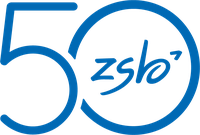Medicine (State Examination)
Proof of sufficient German language skills required for enrollment
Overview
- Overview
-
The study of medicine is uniformly organized in the federal republic through §1 of the medical qualification regulation (Ärztliche Approbationsordnung - ÄAppO). The aim of medical education is to produce the doctor who is theoretically and practically educated in medicine, is enabled to work independently and competent to constantly study further. The degree course imparts basic knowledge, abilities and skills, all of which are necessary for the comprehensive medical treatment and care of the population. The training as a doctor is conducted on a scientific and practical basis.
- Subject-specific prerequisites
-
Subject-specific prerequisites
For a successful study of medicine a good knowledge of the natural sciences in biology, chemistry and physics and an understanding of medicine and science are necessary. Knowledge of Latin is no longer required but is always helpful.
-
Number of enrolled students
2805 students are enrolled in this degree course (as of winter semester 2017/18).
Composition of the Study Programme
- Duration of studies
-
Duration of studies
The regular period taken by students for their studies is 6 years and 3 months.
- Composition of the Study Programme
-
Composition of degree programme
1. Preclinical studies – first section of the studies (semesters 1-4)
- Preclinical studies include the following subjects taught in the form of practical courses, courses and/or seminars: the scientific basis of medicine (physics, chemistry, biology); physiology, biochemistry, molecular biology; anatomy; medical psychology and medical sociology; introduction to clinical medicine, exploring the professional area, medical terminology and one selected subject
- Practical training: a 3-month nursing practical in a hospital is required before the commencement of the studies or during the non-teaching period in the preclinical section of the studies. Also participation on a course "First aid for doctors" is required.
2. First section of the medical examination (commonly called the Physicum, M1)
The examination consists of a written and an oral section. The following subjects are tested in the written section:
- Physics for doctors and physiology
- Chemistry for doctors and biochemistry/ molecular biology
- Biology for doctors and anatomy
- Basics of medical psychology and medical sociology
In the oral section the following subjects are tested:
- Anatomy
- Biochemistry
- Physiology
3. Clinical Studies – second part of the course of study (5th semester to 10th semester)
General clinical diagnosis; pathology, microbiology and immunology, pharmacology and toxicology, human genetics, radiology, biomathematics, among others.
- Practical clinical training in all important clinical subjects (general medicine, surgery, internal medicine, pediatrics, gynaecology, ophthalmology, urology, orthopedics, etc.)
- and general cross-section subjects (epidemiology, history and ethics, emergeny medicine, health economics, maintaining health, prevention and radiological diagnosis, etc.).
During the break between semesters, students must work in a 4-month Famulatur (practical period).
Second section of the medical examination (written examination, M2)
The written examination covers the knowledge and skills needed for doctors to act on his/her own responsibility and to work independently. The examination is case-related (it is a case-study). Subjects of the examination are in particular practical work requirements essential for doctors, the most important disease patterns as well as interdisciplinary and problem-oriented questions.
5. The practical year (11th and 12th semester)
The practical year involves 16 weeks work in each of the following areas:
- Internal medicine
- Surgery
- General medicine or in another area, i.e. not internal medicine, surgery or general medicine.
The training takes place in a hospital, exclusively in the general medicine section it may also take place in a doctor`s office, recognized and accepted by the university.
6. Third section of medicine examination (oral/ practical examination, M3)
In the oral/practical examination the student is examined with questions on internal medicine, surgery and on an optional aspect, all asked with regard to a patient.
- Stay abroad
-
Stay abroad
Justus Liebig University Giessen has partnerships, cooperation and exchange agreements with more than 70 universities worldwide, more than 210 ERASMUS partner universities add to the international profile of JLU. The Department of Medicine has for a long time occupied the top position with its quota of students who spend a semester and/or a part of their practical year abroad.
Application
- Commencement of Studies in the Winter and Summer Semester
-
Commencement of studies
Summer semester and winter semester
- Application: Entrance requirements
-
Entrance requirements
- Applicants must have Abitur (German school-leavers' examinations) or equivalent.
- Special regulations apply to foreign applicants or those who gained their university-entrance qualifications abroad. Read more...
- Application and admissions
-
Application and admissions
The intake capacity of this degree programme is limited throughout the Federal Republic of Germany.
- Application for acceptance to the first semester of study: the application must be directed to Hochschulstart.de (formerly ZVS). More on this...
- Applications for higher semesters: applications must be directed to Justus Liebig University Giessen. More on this...
- Special regulations apply to foreign applicants or those who gained their university-entrance qualifications abroad. More on this...
- Application Deadline
-
Application Deadline
for the winter semester
- May 31 for "old high school graduates" who acquired their university entrance qualification (Abitur) before January 16 of the current year.
- July 15 for "new high school graduates" who acquired their university entrance qualification (Abitur) after January 15 up to (and including) July 15 of the current year.
for the summer semester
- January 15 for both "old" and "new" high school graduates.
Career Options
- Career Options
-
Doctoral studies
In general, the prerequisite for embarking on doctoral studies is a successfully completed university degree. The doctoral course of study will be completed with the written dissertation and an oral exam (disputation). Having been conferred a doctorate, you are allowed to bear the title "Dr.med." / "Dr. hum. biol.".
Career options
- As a practising doctor in hospitals, clinics and health authorities, in their own practice, as a company doctor in a large concern, as a medical examiner for insurance or the pension office, within the framework of development aid, in old peoples homes, etc.
- Work with professional societies;
- Work with professional journals - the media and journalism;
- Work in research universities and colleges, institutions outside these, pharmaceutical industry;
- Work in training and education.
Further Information
- Further Information: Documents
-
PDF documents for the courses of study
- Flyer (in German)
- Study Guide (in German)
- Information material for prospective students (in German)
Examination- and study regulations
- State Examination regulation / approbation regulations (without Teaching Degree Programmes) (in German)
- Study regulations for State Examination Degree Programmes (without Teaching Degree Programmes)
Courses offered in the course cataloge
- Electronical course cataloge (in German)
- Links
- Degree Programmes offered by the Faculties 10 & 11
- International pages
-
Please have a look at our International Pages for more information in English.
- Any Questions
-

Any Questions?
Information- and advisory services of JLU can be found under the category “contact” on this page!
- Help
-
Do you need assistance in choosing the right courses of study?
- Offers: Courses of study
-
Which courses of study suits me best?

Ask Justus offers information for prospective students
Events for prospective students

There is a whole range of events offered by JLU, current events can be found under “news”:
www.uni-giessen.de/studium (in German)
Contact
- Contact
- Subject Advisors
-
-
Study counseling for beginners and preclinical students
Prof. Dr. Klaus-Dieter SchlüterDepartment of Physiology
Aulweg 129
35392 Gießen
Phone: 0641 - 99 47212
Fax: 0641 - 99 47289
Office hours: by appointmentStudy counseling for students at the clinical level
Prof. Dr. Joachim Kreuder
Klinikstraße 29
35392 GießenPhone: 0641 - 99 48030
Office hours: by appointment: Studiendekan@med.uni-giessen.deStudiendekan@med.uni-giessen.de
www.med.uni-giessen.de/studiumPsychological counseling for students of medicine and dentistry
Dr. Rolf Deubner
Center for Psychosomatic Medicine
Department of Medical Psychology
Klinikstraße 29
35392 Gießen
Phone: 0641 - 99 45674 (Secretary's office)
-
- Central Study Advisor
- Alexander Kohrt (M.A.)
- Central Student Services
-
- Students office →
(for formal matters like matriculation) - Central student advisory office
(advice for students & prospective students) - Hotline Call Justus
(first contact for all matters pertaining to studies) - International office →
(for international students)
- Students office →
